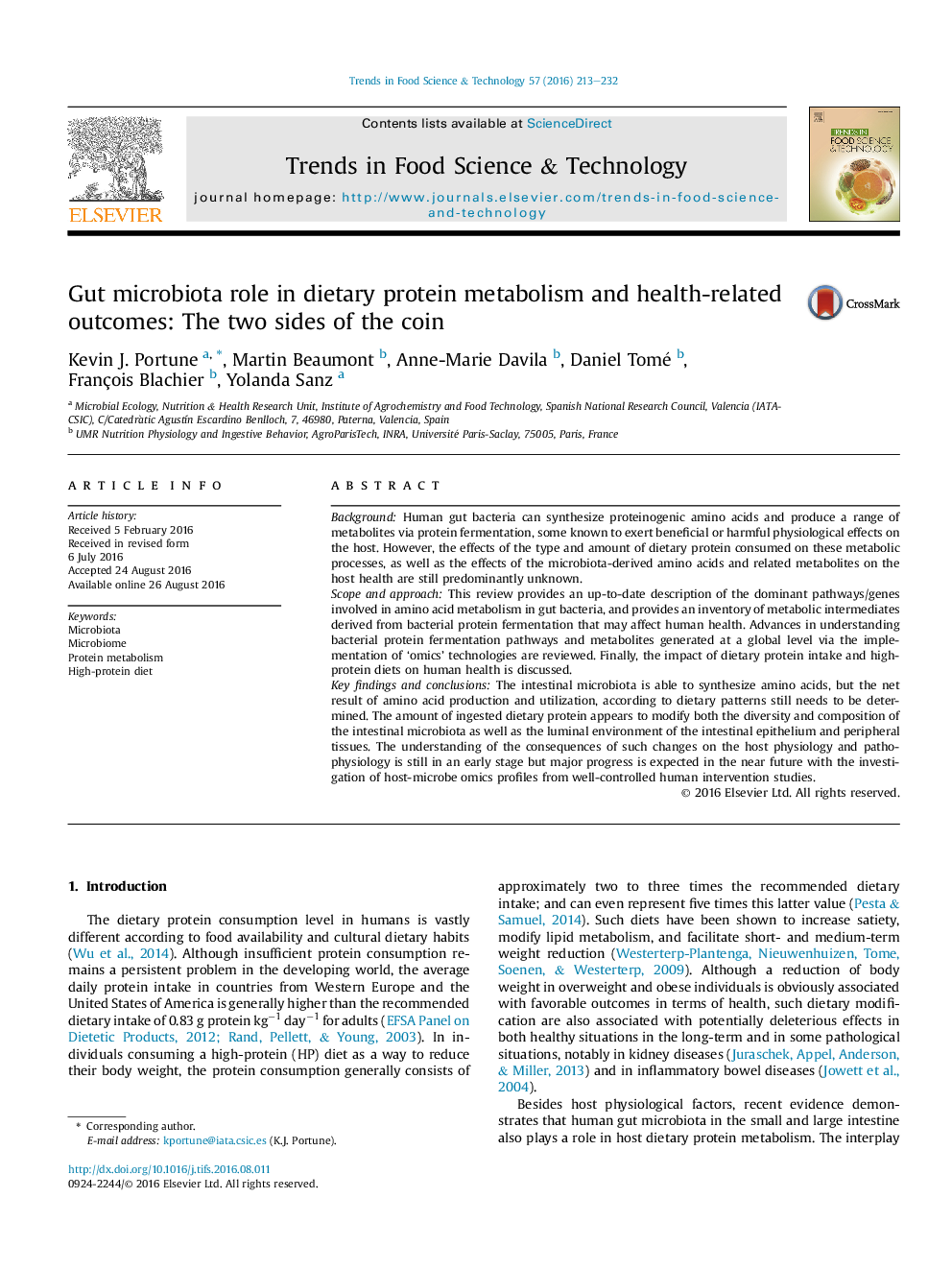| کد مقاله | کد نشریه | سال انتشار | مقاله انگلیسی | نسخه تمام متن |
|---|---|---|---|---|
| 5523824 | 1401392 | 2016 | 20 صفحه PDF | دانلود رایگان |
- Gut microbiota and pathways for protein metabolism remain to be fully characterized.
- Microbiota-produced amino acid metabolites can have beneficial/deleterious effects on host.
- Health effects of dietary proteins on metabolic phenotypes may be mediated by microbiota.
- Influence of the amount and source of protein on microbiota still needs to be defined.
BackgroundHuman gut bacteria can synthesize proteinogenic amino acids and produce a range of metabolites via protein fermentation, some known to exert beneficial or harmful physiological effects on the host. However, the effects of the type and amount of dietary protein consumed on these metabolic processes, as well as the effects of the microbiota-derived amino acids and related metabolites on the host health are still predominantly unknown.Scope and approachThis review provides an up-to-date description of the dominant pathways/genes involved in amino acid metabolism in gut bacteria, and provides an inventory of metabolic intermediates derived from bacterial protein fermentation that may affect human health. Advances in understanding bacterial protein fermentation pathways and metabolites generated at a global level via the implementation of 'omics' technologies are reviewed. Finally, the impact of dietary protein intake and high-protein diets on human health is discussed.Key findings and conclusionsThe intestinal microbiota is able to synthesize amino acids, but the net result of amino acid production and utilization, according to dietary patterns still needs to be determined. The amount of ingested dietary protein appears to modify both the diversity and composition of the intestinal microbiota as well as the luminal environment of the intestinal epithelium and peripheral tissues. The understanding of the consequences of such changes on the host physiology and pathophysiology is still in an early stage but major progress is expected in the near future with the investigation of host-microbe omics profiles from well-controlled human intervention studies.
Journal: Trends in Food Science & Technology - Volume 57, Part B, November 2016, Pages 213-232
